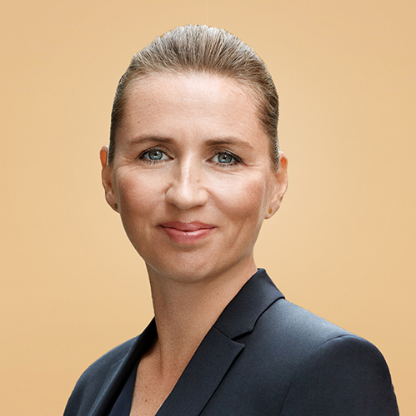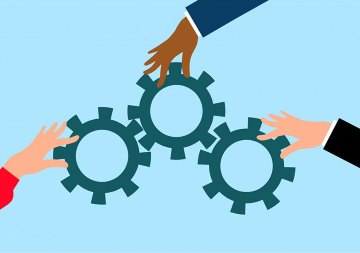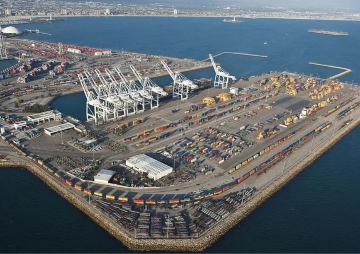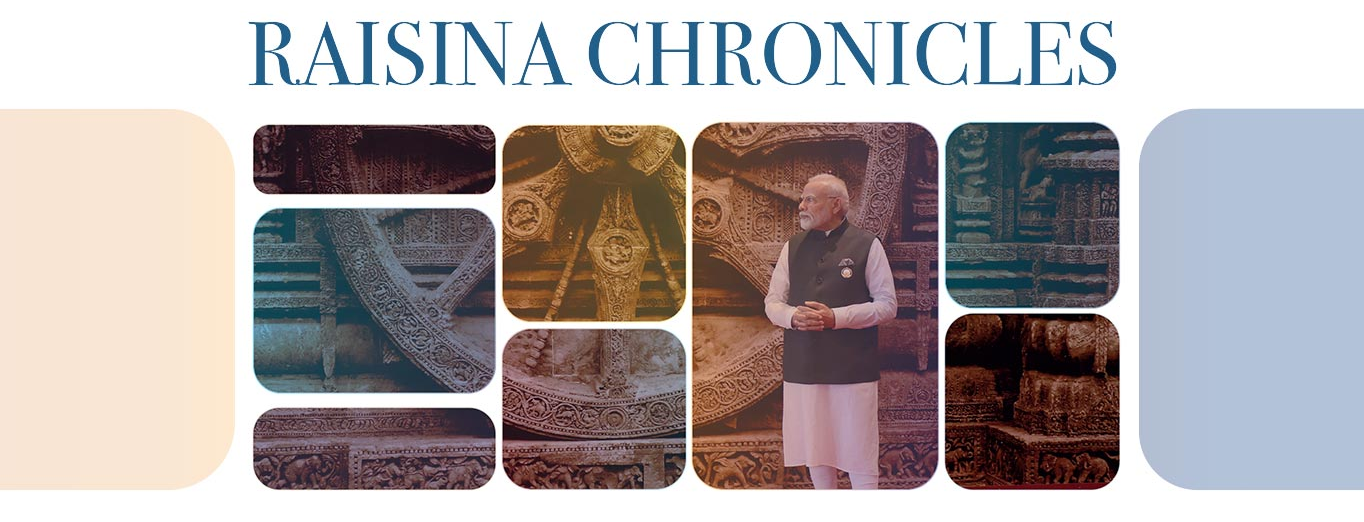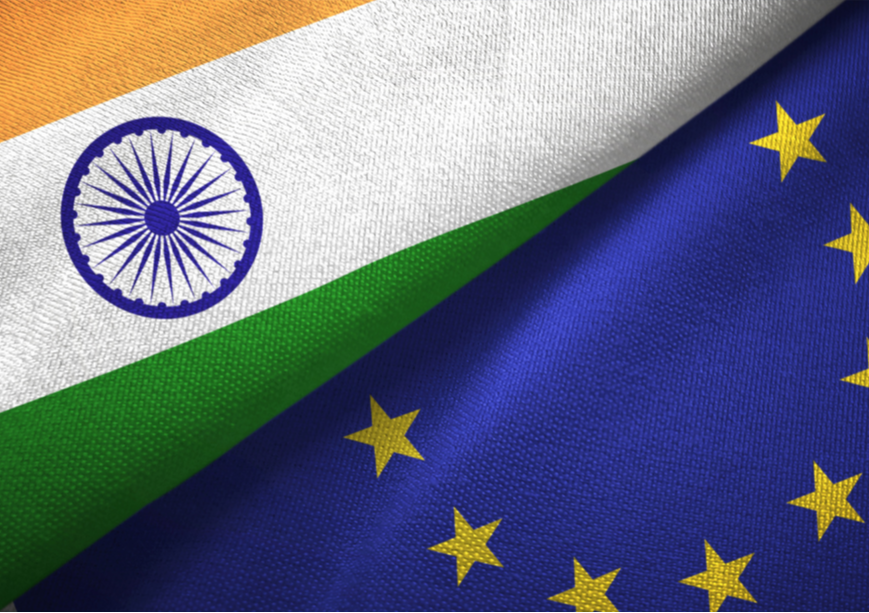
This article is a part of the series - Raisina Chronicles 2024
Today, the world is facing complex and overlapping crises in areas ranging from climate and environment to food, health, energy, and outright military conflict. Crises that reinforce one another and cause instability and insecurity across borders and regions. They affect our supply chains. They challenge our security and our way of life. Security is no longer merely about making our communities safe from traditional threats, but increasingly about dealing with new and interconnected challenges.
From the Indo-Pacific to the Atlantic and beyond, our security is closely linked. Russia’s illegal war of aggression against Ukraine is not just about European security. It affects people and countries across the world through increased food and energy insecurity, inflation, and a weakening of international rules and norms. The war has highlighted the adverse effects of our interconnected world. However, it would be wrong to turn inwards in response or to shy away from our fundamental belief in the benefits of an open, engaging world. Rather, we need to take the necessary precautions to ensure that we can continue engaging with each other in an inclusive and trustful manner. While remaining committed to the rules-based multilateral system, we need to consider both economic and security interests. The latter will require us to diversify supply chains, ensure control of sensitive technologies, and forge new partnerships while strengthening old ones. This cannot be successfully undertaken by any one nation on its own. It can only be achieved through collective efforts.
From the Indo-Pacific to the Atlantic and beyond, our security is closely linked. Russia’s illegal war of aggression against Ukraine is not just about European security. It affects people and countries across the world through increased food and energy insecurity, inflation, and a weakening of international rules and norms.
There is a need for a reinvigorated commitment by all stakeholders to tackle our global challenges together and to renew our collaboration in defence of international rules and norms. Being fortunate enough to having addressed the Raisina Dialogue, I can personally attest to the value of the forum, which throughout the last decade has provided an outstanding platform for reflections and consultations on global challenges.
Please read the full volume here.
A Match for a Greener Future
Our generation’s greatest challenge is the climate crisis. It will require a new level of global cooperation between governments, businesses, civil society, and individuals if we are to achieve the climate and Sustainable Development Goals we have agreed on. It is a daunting task, but nonetheless one we need to address head on. The alternative is societal, economic, security, and environmental consequences on a scale difficult to imagine. But which we unfortunately are already experiencing.
Our generation’s greatest challenge is the climate crisis. It will require a new level of global cooperation between governments, businesses, civil society, and individuals if we are to achieve the climate and Sustainable Development Goals we have agreed on.
In 2020, India and Denmark signed a Green Strategic Partnership, the first of its kind for both nations. It is a mutually beneficial partnership to advance political cooperation, expand economic relations and green growth, create jobs, and strengthen cooperation in addressing global challenges and opportunities. The Green Strategic Partnership builds on a whole-of-government approach involving a range of sectors: climate, energy, environment, water, sustainable and smart cities, food and agriculture, science and innovation, green shipping, labour mobility, health, digitisation, and culture. The partnership sets the framework for cooperation on green transition in a number of areas, with energy cooperation and sustainable water management as central pillars.
India has high green ambitions in the field of energy transition, while also experiencing some of the world’s highest growth rates. Denmark has long been a global frontrunner in green and renewable energy and demonstrated that it is possible to commit strongly to a green trajectory while at the same time creating growth and employment. Experts from the Danish Energy Agency are embedded in organisations under the Indian Ministry of New and Renewable Energy and the Ministry of Power, where they contribute to make a green difference every single day. Here, they support India in its ambitious goal of becoming climate neutral by 2070 by contributing to developing offshore wind policies and integrating renewable energy into the Indian power system. Furthermore, water experts from the Danish Environmental Protection Agency, Danish water utility companies, and the City of Aarhus are working with Indian stakeholders to support India’s ambitious initiatives to address the enormous challenges in the Indian water sector by utilising Danish know-how and technology.
The Green Strategic Partnership has already shown concrete results. One example is the India-Denmark Energy Partnership, which focuses on capacity building and technology transfer in the areas of offshore wind, energy modelling, and integration of renewable energy. Through this partnership, the Danish-Indian Center of Excellence on Offshore Wind and Renewable Energy has been created with an aim to contribute to the tender of up to 37 gigawatts of offshore wind power in India by 2030. Denmark is also assisting India with knowhow and skills in its ambitious Jal Jeevan Mission, in the process providing clean water to nearly 200 million households in the countryside. The Green Strategic Partnership is an example of how we can achieve results by pooling resources and leading by example. This can hopefully serve as an inspiration to others. It shows how growth and the green transition are not mutually exclusive, but can go hand in hand.
India and Denmark have partnered up in the journey towards a greener world. Our two nations may, at first glance, look like an odd match, but the partnership is unique in combining our different capabilities. Denmark is a country of less than six million inhabitants. India is a country of 1.4 billion people–now the most populous country in the world. Denmark makes up just 0.4 percent of the global economy, but has highly specialised skills within certain fields. India, on the other hand, is one of the world’s largest economies on course to more than doubling its share of global GDP by 2050. It is an ambitious partnership that matches skills with scale, as Indian Prime Minister Narendra Modi himself eloquently put it.
The Importance of Partnerships and Global Cooperation
The Green Strategic Partnership between India and Denmark also seeks to have a global impact by aiming at delivering on the 2030 Agenda for Sustainable Development and the Paris Agreement. As a part of the partnership, India and Denmark collaborate in the International Solar Alliance and during the Indian Presidency of the G20, Denmark participated in working groups on climate and environment and energy transition. Thus, we hope to apply the experience gained from our close bilateral relationship globally. India and Denmark also share ambitions on increasing global mobilisation of climate finance. This will require close collaboration, both in order to raise the necessary private capital and to pursue ambitious reforms of the international financial architecture, including the multilateral development banks, to ensure it delivers for all.
The Green Strategic Partnership between India and Denmark also seeks to have a global impact by aiming at delivering on the 2030 Agenda for Sustainable Development and the Paris Agreement.
On another front, partnerships also play a crucial role in making our societies more secure and robust. This became apparent to all when COVID-19 tested the capacity of healthcare systems across the globe. The many negative consequences of Russia’s illegal war against Ukraine have likewise underscored how trade and interdependencies can also bring risks and vulnerabilities. The lesson from an old story by the famous Danish author, Hans Christian Andersen, still applies: It is unwise to put all your eggs in one basket. That is why Denmark has supported new EU industrial policy measures in order to reduce critical dependencies and build resilience by diversifying supply chains and investing in research and innovation. However, if we truly want to ensure our influence on the technologies of tomorrow, we need to form new partnerships as well as expand existing ones. The India-EU Trade and Technology Council, only the second of its kind, stands as a prominent example of how we forge bonds in new and emerging fields for the mutual benefit of all partners.
It is my firm belief that global development, peace, and prosperity are contingent on mutually beneficial partnerships and cooperation based on equality. We must become better at listening to each other. As Prime Minister Modi said in the context of India’s G20 Presidency: “One world does not equal one philosophy.” India has for decades lived by this ethos, serving as a central voice for the Global South while upholding diversity and rejecting one-size-fits-all models of national development. India has shown that it is willing to walk the talk as a Vishvaguru (a world teacher or world leader), as when the COVID-19 pandemic swept across the world, and India supplied and donated tens of millions of vaccine doses to the world. I firmly believe this kind of inclusive leadership will be crucial to solve the many global challenges we are facing.
India’s respect for diversity and differences is also reflected in Denmark’s own commitment to multilateral cooperation, and in our belief that sustainable development can only be achieved by working together on the basis of mutual respect and dialogue. As a small country with a strong democratic tradition, Denmark understands the value of an international order where all countries—large and small— have an equal voice. To that end, Denmark is a strong proponent of a more inclusive and effective multilateral system able to address the global challenges we face. Solidarity and cross-regional cooperation are at the heart of our international and multilateral engagement. These are values we hope to further promote if Denmark is elected to serve on the UN Security Council in 2025-2026.
The Danish Government remains fully committed to developing partnerships as a way of solving our common problems. Today, Denmark has established green strategic partnerships or energy collaboration agreements with countries responsible for 70 percent of the world’s CO2 emissions. I am certain that the Raisina Dialogue in a similar spirit will continue to provide an excellent platform for promoting new and closer partnerships, while serving as a space for highlighting challenges to our mutual development, and sharing valuable experiences on how to solve them, for the benefit of all humankind.
The views expressed above belong to the author(s). ORF research and analyses now available on Telegram! Click here to access our curated content — blogs, longforms and interviews.




 PREV
PREV
